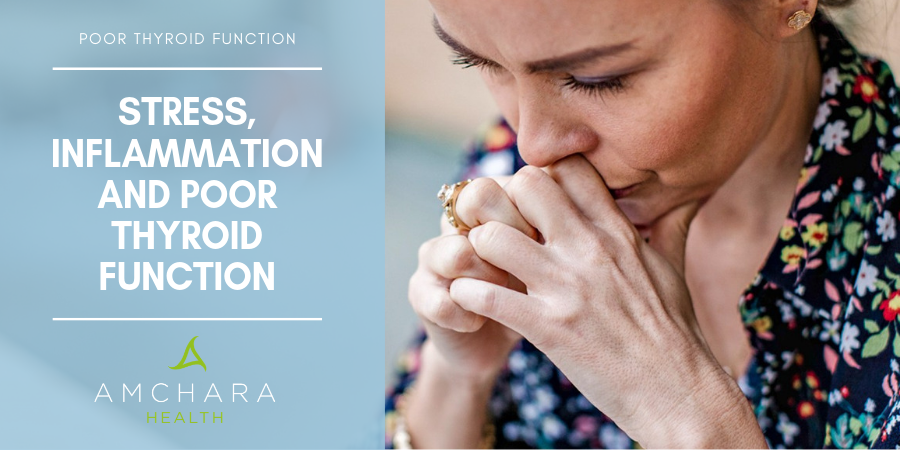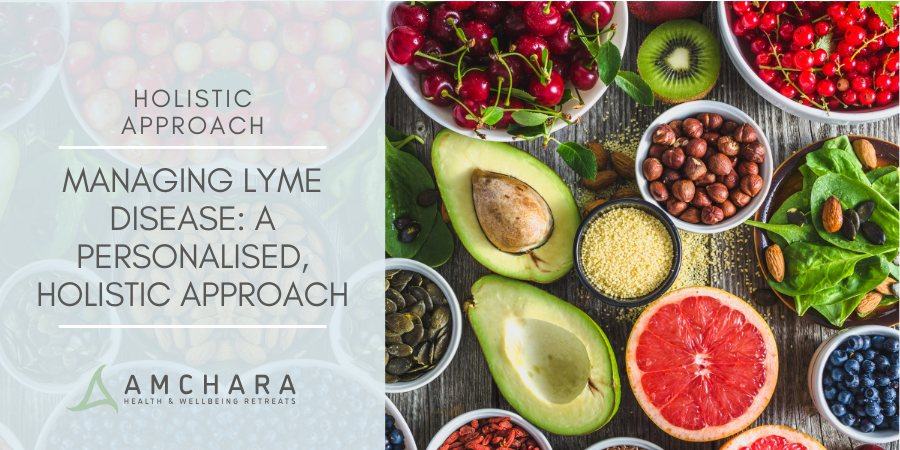Getting to the root of why your thyroid is not functioning as it should is one step towards changing things for the better.
Oxidative stress and inflammation are responsible for a number of chronic diseases including thyroid health, but it is possible to turn things around.
Choosing the right nutrition for you and making some healthy lifestyle changes can make quite a difference to your overall sense of wellbeing and may even tip your thyroid hormone balance in the right direction.
The thyroid gland is an extremely important organ, controlling the metabolism of every cell in the body, which regulates numerous functions including breathing, heart rate, digestion, body weight, muscle strength, temperature control, fertility, the nervous system and much more.
When something goes wrong it can have an impact on your general wellbeing.
If, for instance, you had low thyroid function you might experience a number of symptoms such as weight gain, fatigue, low mood and constipation.
In this article we talk about the thyroid and what its functions are as well as examining the link between oxidative stress, inflammation and thyroid health.
We’ll also give you some useful dietary guidelines on how to reduce oxidative stress and inflammation.
Function of the thyroid gland
The function of the thyroid gland is to make thyroid hormones.
It does this by taking iodine from the food you eat and combining it with the amino acid tyrosine.
Together, these nutrients can be converted into the major thyroid hormones T3 and T4.
Thyroid hormones are then dispersed into the blood circulation and taken up by the cells where they control the metabolism of oxygen and the conversion of calories from food into energy.
Food sources of Iodine (5):
- Seaweed (kelp, wakame, nori)
- Cod
- Eggs
- Cottage cheese
- Yogurt
- Milk
- Iodised salt
- Shrimps
- Haddock
- Salmon
- Tuna
- Nuts
- Fruit and vegetables
Food sources of Tyrosine:
- Cheese
- Turkey
- Salmon
- Chicken
- Pork
- Beef
- White beans
- Pumpkin seeds
- Peanuts
- Wild rice
- Oats
- Eggs
The connection between oxidative stress & inflammation
Low thyroid function, or hypothyroidism, can be due to a number of factors but is often a result of autoimmune disease.
An example of this is Hashimoto’s thyroiditis, which is inflammation of the thyroid gland.
This is due to a dysfunctional immune system which, instead of protecting your body against viral and bacterial pathogens, produces antibodies to the protein of connective tissues and specific organs such as the thyroid.
The result is an immune system that attacks the thyroid gland.
High levels of oxidative stress can often be the culprit for inflammation because of the damage it causes to cells and tissues.
Inflammation is after all the mechanism the body uses to initiate the healing process in cases of damage, injury or infection.
Research has identified that oxidative stress activates pro-inflammatory molecules produced by the immune system, which leads to enhanced inflammation (2)
Oxidative stress usually occurs when the body’s own antioxidant defences are insufficient to counter the effects of tissue damage caused by free radicals, such as reactive oxygen species (ROS) and reactive nitrogen species (RNS).
An increase in ROS or RNS production that is not neutralised or prevented can produce cell damage that over time may contribute to the development of inflammatory diseases.
Oxidative stress and thus inflammation are key factors in thyroid disease and have been linked to both hypothyroidism and hyperthyroidism. (1)
Research shows that free radical damage can inhibit certain liver enzymes that interfere with the production of thyroid hormones. (3)
Results from studies also show that oxidative stress increases continuously as hypothyroid conditions develop. (4)
How to prevent oxidative stress
As the saying goes – prevention is better than cure – this is most certainly the case with free radical damage and oxidative stress.
Oxidative stress can occur due to environmental factors such as smoking, drinking alcohol, too much sun, a poor diet, exposure to toxins in synthetic products and exhaust fumes.
However, it can also occur just through normal aerobic metabolism, such as eating, sleeping and breathing.
Whilst you can’t stop breathing and sleeping, you can take steps to reduce the risks in your environment by avoiding:
- Highly processed foods
- Gluten
- Trans fats
- Additives
- Recreational drugs
- Alcohol
- Cigarette smoke
- Pesticides
- Synthetic beauty products
- Synthetic household cleaners
- Extreme exercise regimes
- Living or working in highly polluted areas
- Over exposure to the sun
How to reduce inflammation
If you already have an existing inflammatory condition, or would like to prevent inflammation, there are some easy nutritional choices you can make. An eating plan that includes at least 5 to 10 portions of fruit and vegetables will provide you with a range of beneficial antioxidants and flavonoids that can help to ward off inflammation.
Removing foods you are intolerant to is important, as these can trigger chemicals such as histamine that promote inflammation.
There are also a number of pro-inflammatory foods that you would be well advised to avoid such as:
- Red meat
- Dairy products
- Caffeine
- Alcohol
- Spicy foods
Certain foods have been found to contain anti-inflammatory substances that can be useful in the treatment of inflammatory diseases including:
Oily fish – salmon, herrings, fresh tuna, sardines, anchovies and mackerel are rich in omega-3 fatty acids (EFAs). These EFAs have particularly beneficial anti-inflammatory properties.
Turmeric – this popular culinary spice contains curcumin (the main active ingredient) which is responsible for its powerful anti-inflammatory activities. It is also a valuable antioxidant.
Ginger – supresses pro-inflammatory prostaglandins, hormone-like chemicals produced from different types of essential fats. Some trigger inflammation and others effect a non-inflammatory response. Ginger appears to have a positive effect on these fats.
Pineapple – rich in bromelain, an enzyme that is a particularly good digestive aid. When taken with meals it helps to digest protein. If taken on an empty stomach it has potent anti-inflammatory effects.
Berries – strawberries, blackberries, raspberries and blueberries are rich sources of antioxidants, which help to counter the effects of free radical substances that cause cell damage and lead to inflammation. What’s more the combination of antioxidants in fruits causes their reciprocal regeneration which intensifies their defence against free radicals.
Walnuts & flaxseeds – significant sources of omega-3 EFAs and an excellent addition to an anti-inflammatory meal plan. There are also other components in walnuts such as magnesium, fibre and L-arginine, which appear to confer protection against inflammation.
A final thought…
Making lifestyle and nutritional changes can restore thyroid balance, putting an end to chronic symptoms.
In order to address many of the contributory factors and obtain optimal thyroid support, additional guidance from a qualified and experienced practitioner such as a naturopath or nutritional therapist can be beneficial.
Start your journey to optimal health today and take advantage of an initial complimentary consultation.
READ THIS NEXT:




